A while back, my husband and I attended a movie called “Over 18”, which is a documentary that talks about the harmfulness of the porn industry, particularly to children and youth. We both came away from the film rather discouraged on how to actually protect kids online.
The porn industry is a big system, designed to create addiction so that it can make more money.
Studies show that 90% of boys and 60% of girls have been exposed to internet pornography before 18. Say WHAT? I just want to put masks over my little boys’ eyes forever.
The most powerful testimony in the movie was the 13 year old boy who became addicted to pornography at age 8. ← That’s not a typo.
Age 8.
And it all happened on the computer in the kitchen while being homeschooled by his loving Christian parents. These were not negligent parents. They were normal, loving parents, just like you and me. And their boy spiraled into this horrible addiction, feeding the monster in 30-second to 5-minute intervals when his mom had turned her back.
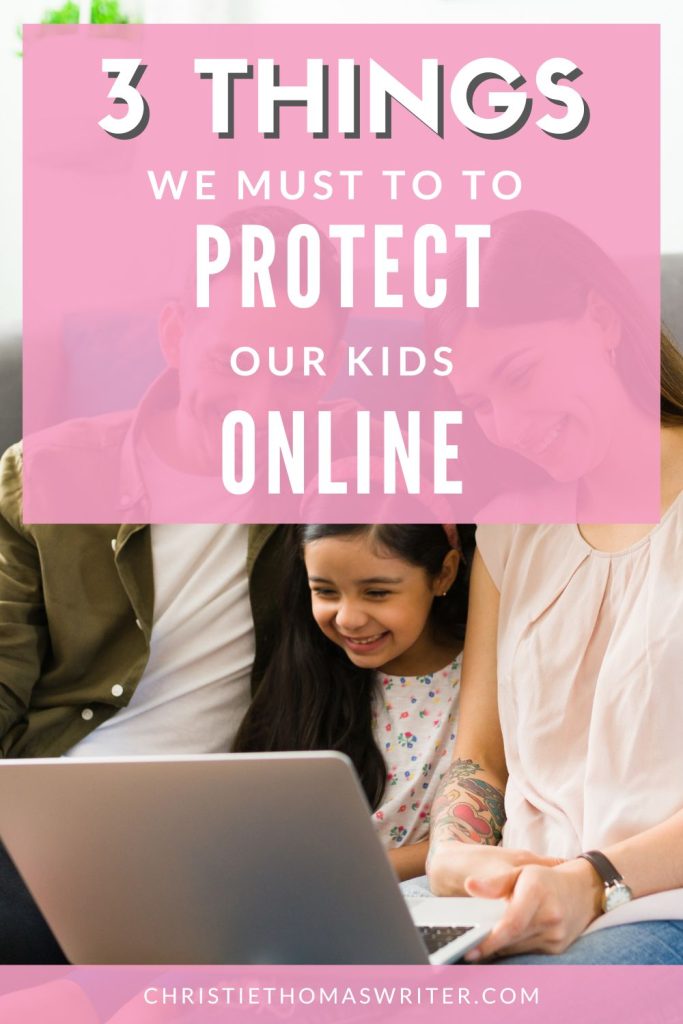
Many children stumble on pornography accidentally, or because a kid down the street said “guess what you can look up on the internet?!” But while it may start out innocent, children and youth are extra vulnerable to addiction because of the way the human brain develops.
Why is that?
Exposure to pornography stimulates the pleasure centers in the brain. Dopamine is released, which helps the brain remember what made it feel so great, and can lead to cravings for more of the same. (This is the same thing that happens when brains are exposed to drugs.) <–This is really simplistic, and if you want to read more stuff that sounds a lot smarter, you can check out these articles.
This reward system is fully matured in the early teens, which is not so great because the part of the brain that makes good choices (the prefrontal cortex) doesn’t fully develop until our 20s. This cautionary part of our brain is what keeps most people from getting thoroughly addicted to drugs or pornography. It’s the part that says “wait, this might feel good but it’s not good for me”.
That, my friends, is a recipe for a cultural disaster.
- Faithful young men walk into the pastor’s office, stating that they’re addicted to pornography.
- Teen boys get arrested on their first date because they thought girlfriends got turned on by choking.
- Husbands feel no attraction to their wives.
- Women can become addicted too, but even if they’re not, women of all ages feel degraded and objectified. This industry is POWERFUL.
Doesn’t it make you want to scream? It makes me want to scream and vomit at the same time.
What can faithful parents do when faced with this horrifying monster?
How to protect our kids online:
1. Pray
“For our struggle is not against flesh and blood, but against the rulers, against the authorities, against the powers of this dark world and against the spiritual forces of evil in the heavenly realms.” (Ephesians 6:12)
Our fight is not against the humans who run the pornography industry, it’s not against the actors, and it’s not against the internet. It’s against the enemy, the thief who comes to kill and destroy.
He has already been defeated (remember, in John 16:33 Jesus said he has already overcome the world!), but the enemy is going down kicking and screaming.
As believers, one of our jobs is to pray that God’s will would be done here on earth as it is in heaven.
So, friend, we must pray. Pray for the innocence of our children, pray for the healing of our sexual lives, pray that those who are trapped in the industry would be freed.
You can snag my free prayer resource (as part of my prayer printable package) to help you get started by clicking here or on the picture below!
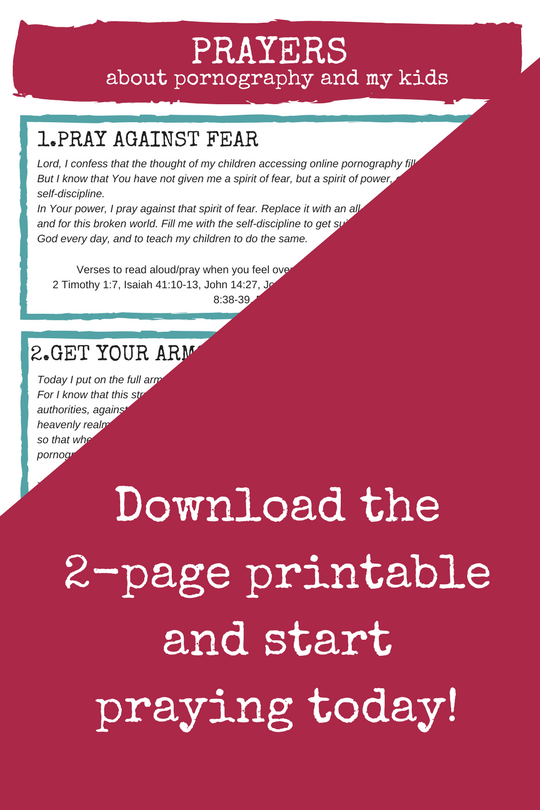
2) Get a good internet filter
We can’t put our heads in the sand and pretend this issue doesn’t exist. Not putting guidelines on our child’s internet use is like taking them into a war zone in beach clothes.
As far as external monitoring software, we did initially buy the “Circle”, but it seems to be discontinued. We stopped using it because it slowed down our internet speeds too much and currently use the parental controls on our Google Home wifi router.
[I recommend checking the Protect Young Eyes website because they keep up-to-date on the best routers for families.)
BUT WE CAN’T STOP HERE.
Most articles on this topic will stop right here. They’ll tell you to buy a good service and let that do the work.
My friend, it is a mistake to believe that technology is going to save you from technology.
ANY filtering software you buy can be hacked or bypassed by a motivated teen, and there’s nothing to stop them from simply using someone else’s device.
We must also teach our kids to develop an internal filter.
That part of the brain may not be fully developed, but it’s still there, and it can be trained.
3a) Teach healthy sexuality, starting VERY young
I’ve heard a lot of parents with 10-year-olds who haven’t said anything to their kids about sexuality yet. I’m going to give you a little tough love here: that is a mistake. (but there’s still hope! Keep reading!)
Whether your 10-year-old is homeschooled, Christian schooled, or public schooled, they have heard dirty words and been curious about them. They may have even seen pictures or pornographic movies already. They might have a friend down the street who’s shown them the interesting stuff that can be googled. There might be a kid on the bus or even at church who wants to show off what he learned from his older cousin.
So what can be done?
We need to open up conversations in our homes, teaching our kids that this is no longer the taboo subject that it was when we were kids. We need to teach kids that sexuality is a good gift from God, but we need to do this in age-appropriate ways.
I have researched a lot of books and resources, trying to find the best ones for my own family, and for those in my church, and the books and courses from Intoxicated On Life are the absolute BEST. They’re even endorsed by the CEO of Covenant Eyes. Yes, they’re that good.
The Talk is for ages 6-10, and talks about basic differences between male and female, how babies are conceived, in utero development, the goodness of sex in marriage, adultery, rape, sexual abuse, and the importance of honoring God with our bodies. These sound like heavy topics, but we did this study with our eldest when he was 6, and are currently working through it again with our 6 and 8 year olds, and all topics are handled with sensitivity to the child’s developmental level.
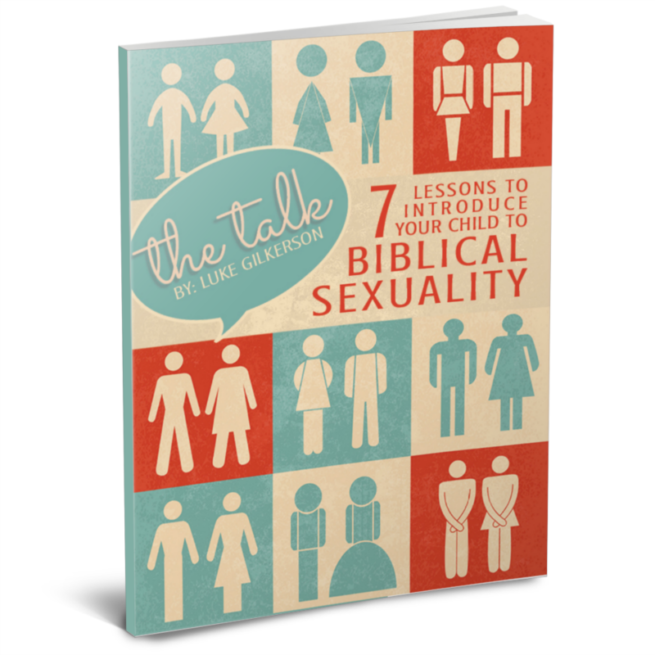
You can buy this book as a PDF or paperback, or as a video e-course. The video course also addresses the hot-button issues of masturbation, pornography, and homosexuality, and is intended to teach parents how to have the conversations.
Changes is for ages 8-12, and we’ll be starting it with our eldest as soon as we finish his Talk refresher! This book starts by helping your child see puberty as something good, as one of several significant phrases in growing up. It talks about the mental, emotional, and physical changes in both boys and girls. The last lesson goes into physical attraction.
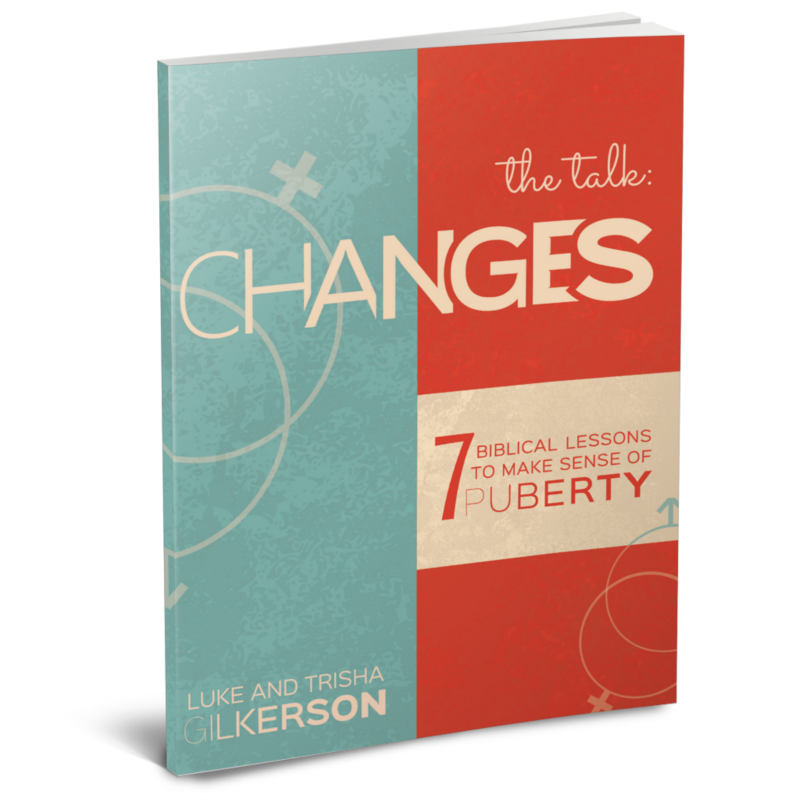
You can buy this book as a PDF or paperback, or as a video e-course. The video course also addresses the hot-button issues of homosexuality, pre-marital sex, and pornography, and is intended to teach parents how to have the conversations.
Relationships is for age 11-14, and helps them toward a greater understanding of Biblical sexuality. From its original goodness to brokenness and temptations, strategies for overcoming lust and becoming wise in our friendships, to the last lesson on the life-transforming grace of God for sinners, this study is LOADED. We don’t have an 11-year-old yet, but I guarantee we’ll be using this one in a few years.
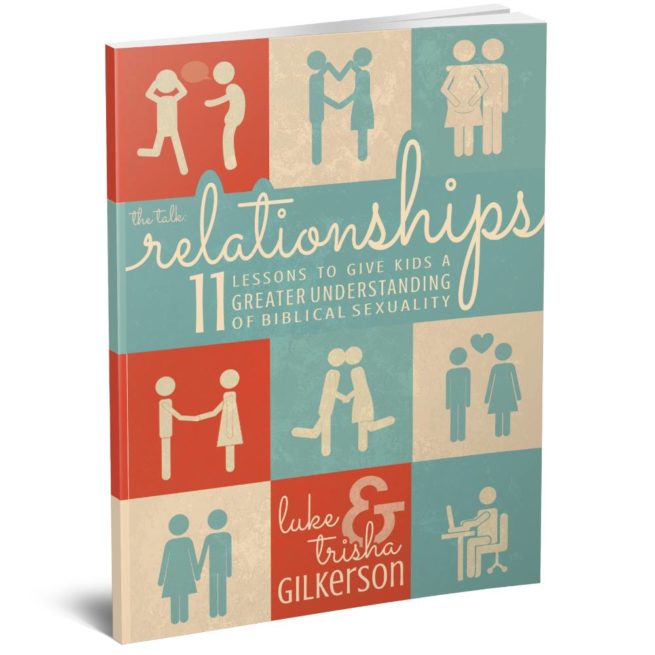
You can buy this book as a PDF or paperback. No video course for this one yet.
3b) Explain the dangers of porn to your children
One day our 8-year-old son came home from school and told us that while he’d been searching for National Geographic Kids, he found a link that said “Are you single? Our girls are attractive.” We were SO proud of him for (a) not clicking on it and (b) telling us.
But you know what? If we hadn’t prepared him for this, he might have clicked on that and probably would have been exposed to porn.
We prepared him using this incredible book: Good Pictures, Bad Pictures
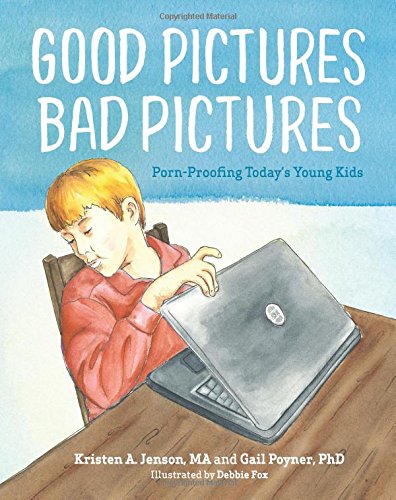
OK, so you’ve got your 3 points of action.
- You’re going to start praying intentionally (snag your prayer resource here),
- you’re going to install a filter (like this one),
- and you’re going to get talking about sex with your kids in an age-appropriate way so that it becomes a safe conversation in your house (more resources for talking about sex, pornography and abuse with kids here).
Get it?
Got it.
Good.
Let’s do this together.
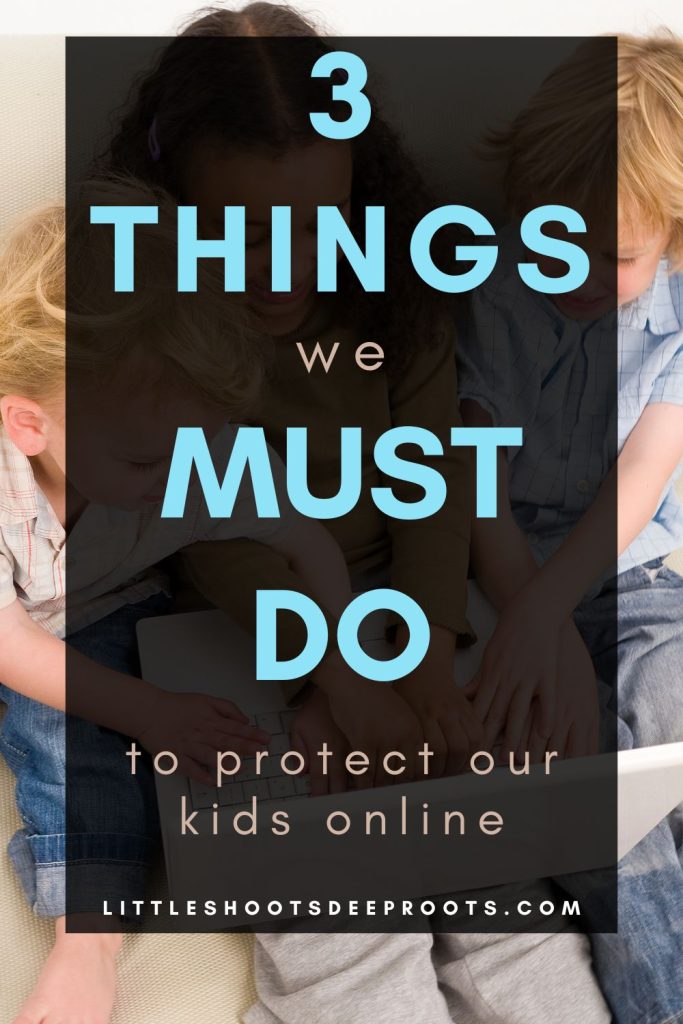


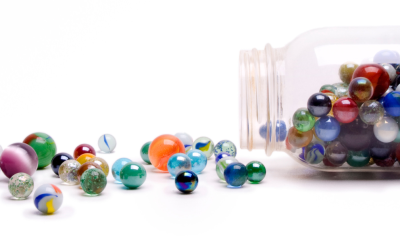
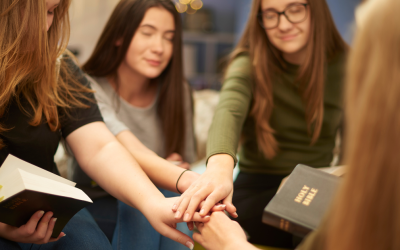
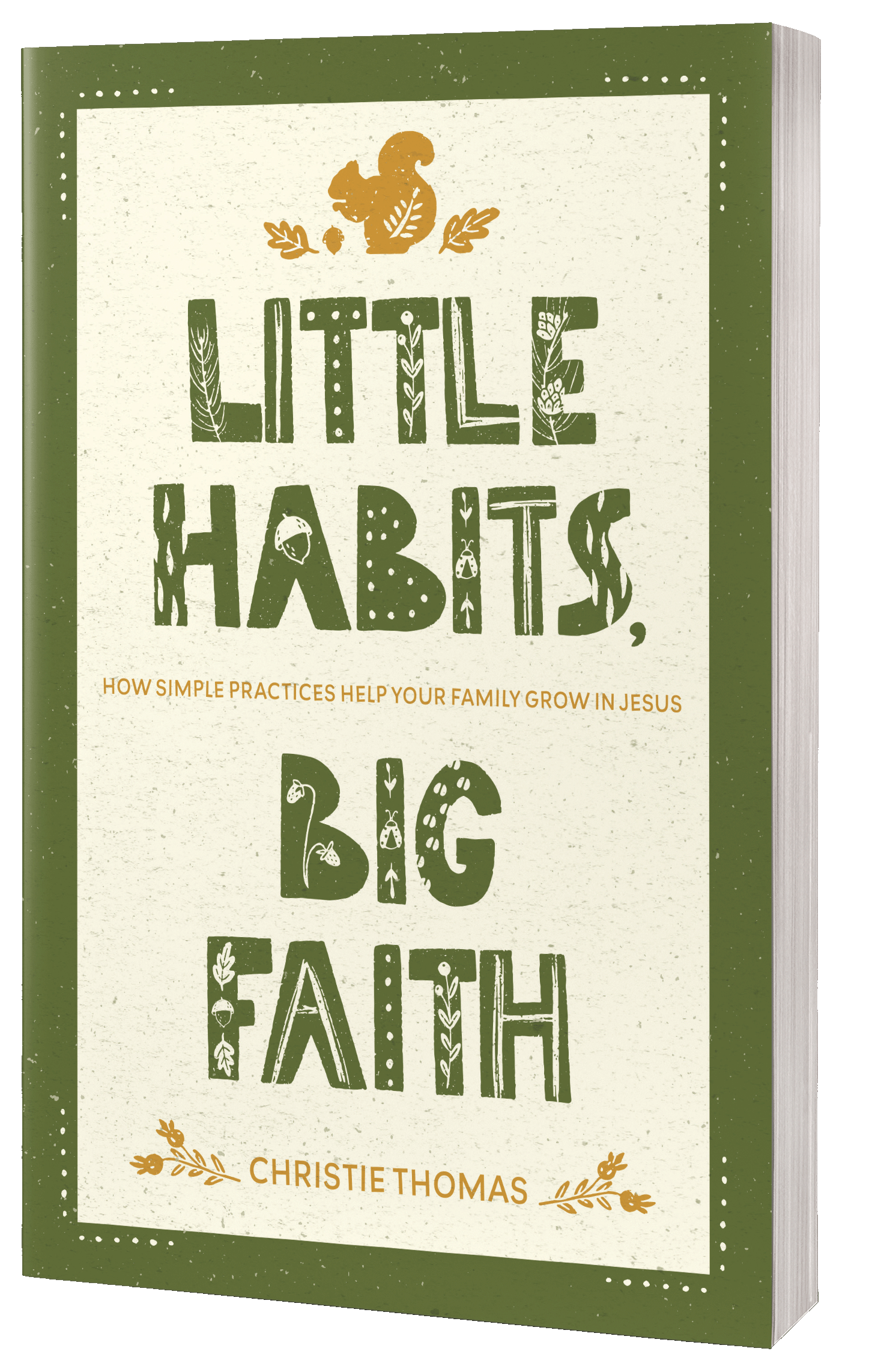
Thanks for promoting our books. So glad you enjoy them!